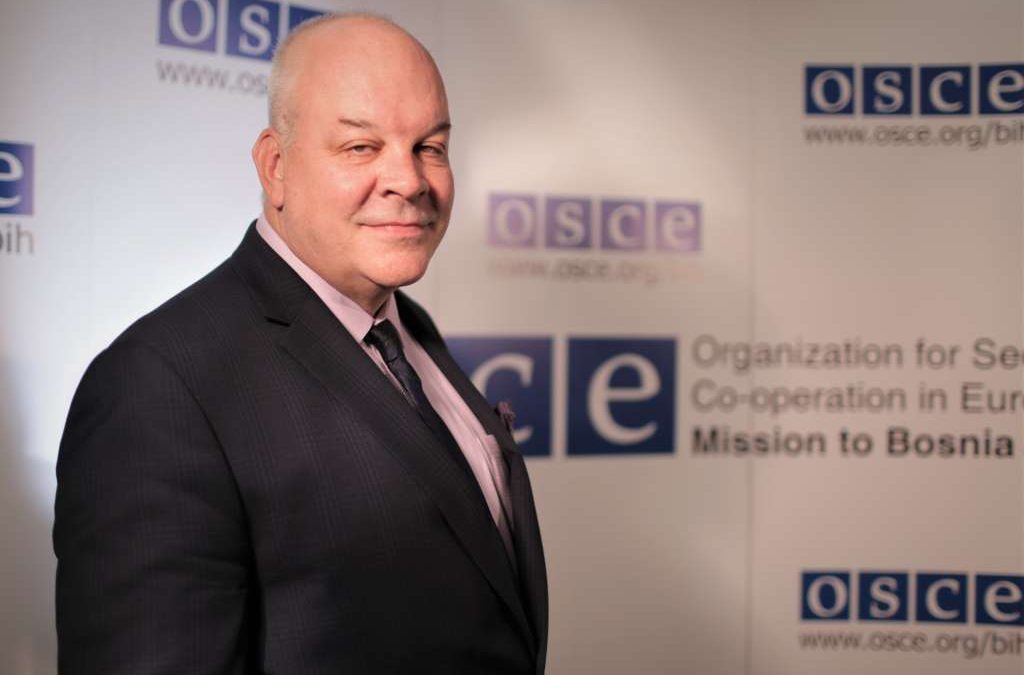Sarajevo (Fena) – Bosnia and Herzegovina faces significant environmental challenges, including air pollution, illegal dumpsites, and resource management issues, which affect people’s lives and lead to protests.
– Addressing these problems is vital for a sustainable future. The OSCE considers environmental issues key to security – said the head of the OSCE Mission to BiH, Ambassador Brian Aggeler, in an interview with Fena.
According to him, if left unresolved, these issues can cause tensions and instability, while cooperation in the area of the environment can build trust.
– We work with authorities, civil society, and the academic community to raise awareness and promote actions, in areas ranging from waste management to disaster risk reduction. Our mandate, under the Dayton Peace Agreement, focuses on good governance and human rights, which are key principles we also promote in our work on environmental protection. We support the implementation of the Aarhus Convention, which grants citizens essential environmental rights – says Ambassador Aggeler.
Additionally, they cooperate with the judiciary to strengthen the enforcement of environmental laws and tackle criminal offenses and corruption in the field of environmental protection. Last but not least, they monitor environmental protests from the standpoint of freedom of peaceful assembly and association.
Exploitation of one resource – minerals – attracts much public attention in BiH and the region, both positive and negative, with governments and investors citing economic opportunities, while opponents and activists express environmental concerns. Aggeler says that the OSCE has long recognized the close connection between environmental protection, the “rational use” of natural resources, social welfare, and economic development, linking these areas in its founding document: the Final Act signed in Helsinki in 1975.
– Almost fifty years later, we still affirm the indivisibility of security and sustainable development, supporting BiH in meeting the Sustainable Development Goals. The issue of minerals draws increasing attention in BiH and the region due to the presence of deposits of lithium, nickel, cobalt, and other materials necessary for the transition to cleaner forms of energy and a more environmentally-based economy. We at the OSCE Mission to BiH recognize the importance of key minerals necessary to respond to the growing need for clean energy technologies, and thus for action in the field of climate change. We also understand the importance of foreign investments for creating jobs and opportunities, as well as for revitalizing towns and villages facing the threat of being neglected – added the ambassador.
The ambassador says that mining and other forms of extraction must adhere to the strictest environmental protection standards to prevent water contamination and soil degradation, minimize disruption to ecosystems, loss of biodiversity, and air pollution, and reduce other risks that can negatively impact citizens’ health and living standards.
Asked whether the current legal framework provides adequate environmental protection in BiH, Aggeler says that BiH has made significant improvements to the legal framework in the field of environmental protection, including provisions from numerous international environmental agreements.
Recently adopted amendments to the Geological Research Law of the Republika Srpska have been criticized due to the fact that local government units do not participate in the process of granting consent for geological research. Aggeler points out that the OSCE Mission is monitoring legislative processes and cooperating with competent authorities at all levels of government, aiming to build transparent and accountable institutions ready to respond to citizens’ needs.
Finally, he sent a message to the institutions in BiH, stating that the OSCE supports BiH in building a democratic society with a strong rule of law, which allows sustainable use of natural resources and respects environmental protection standards. (8.8.)
 go to the original language article
go to the original language article
